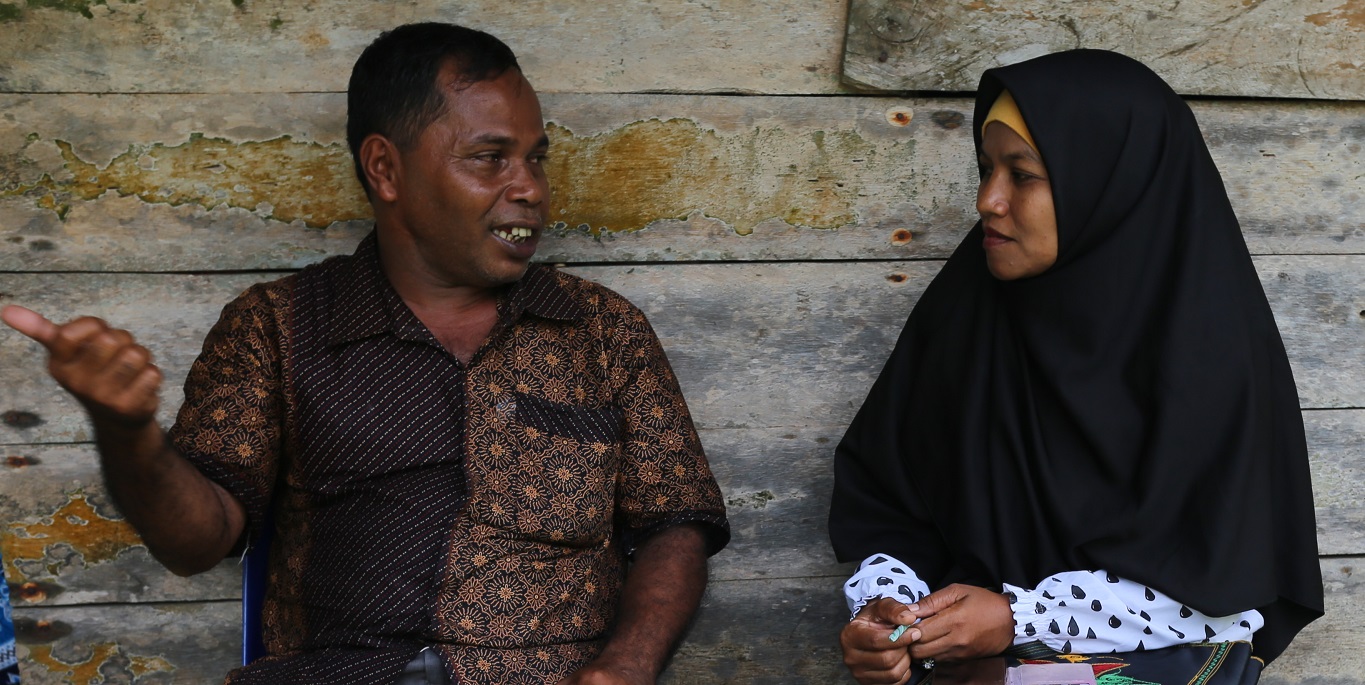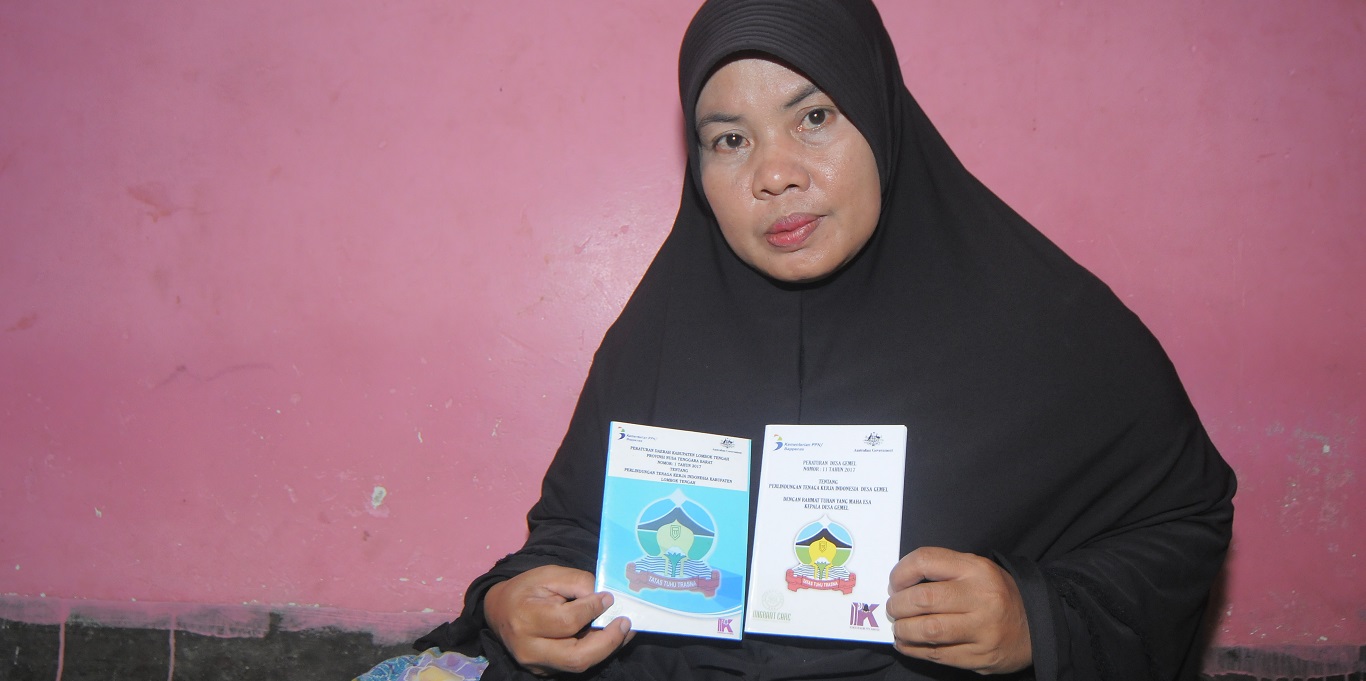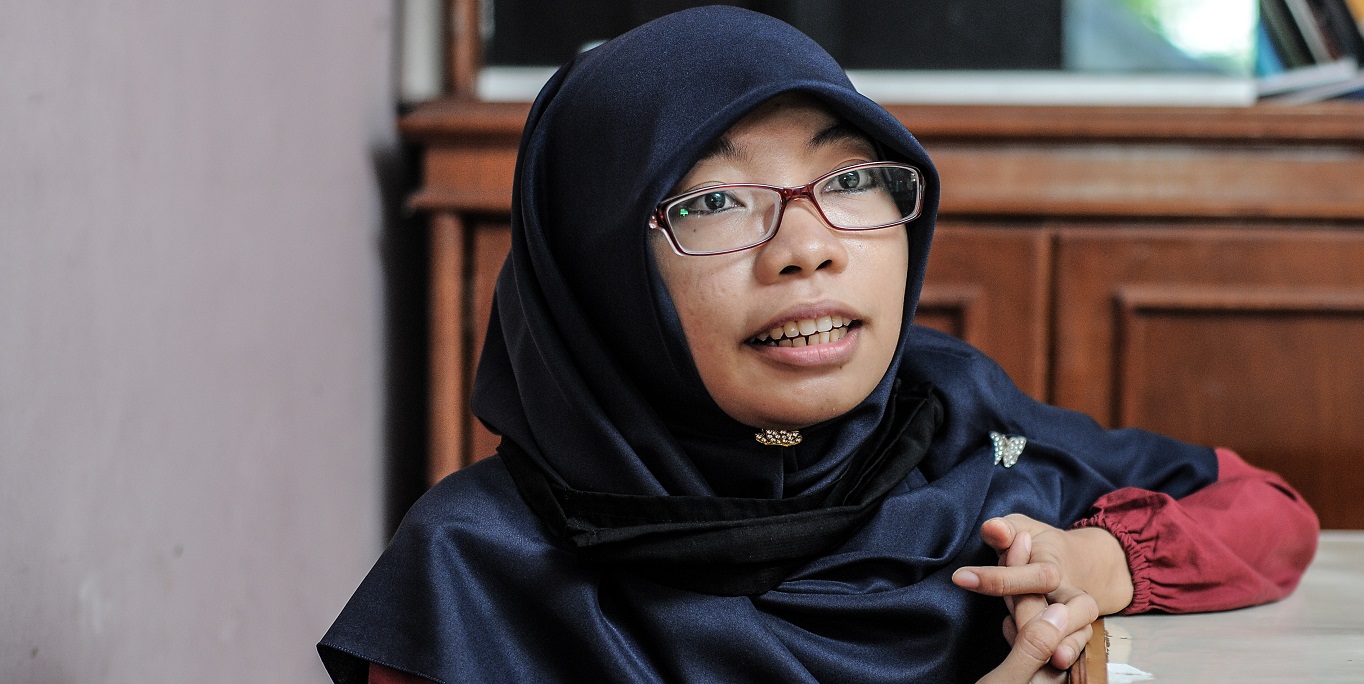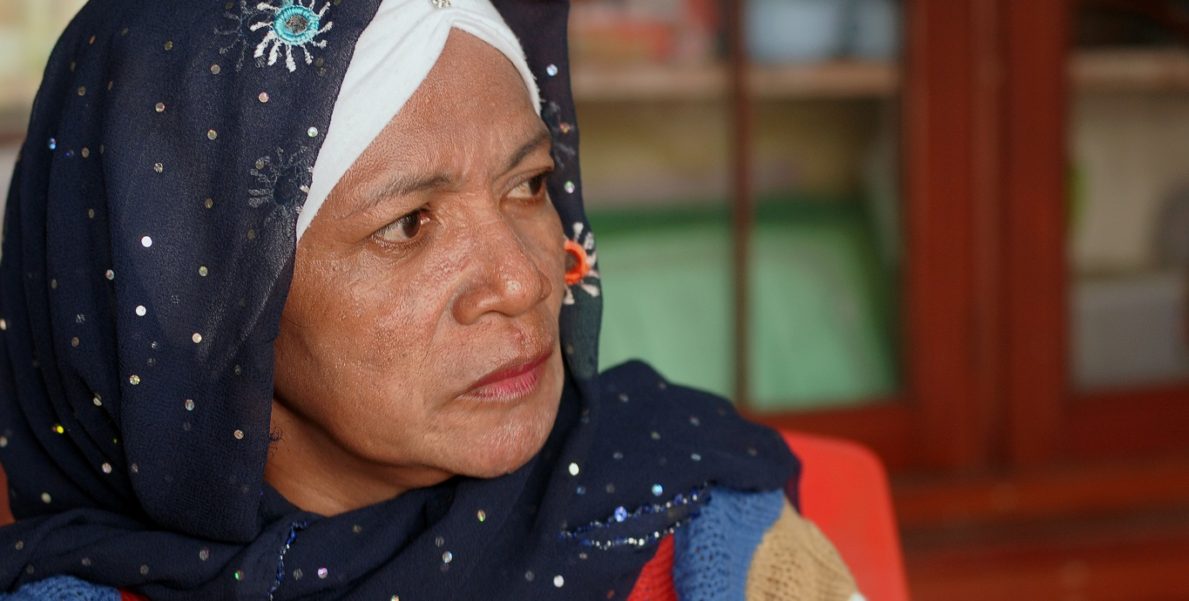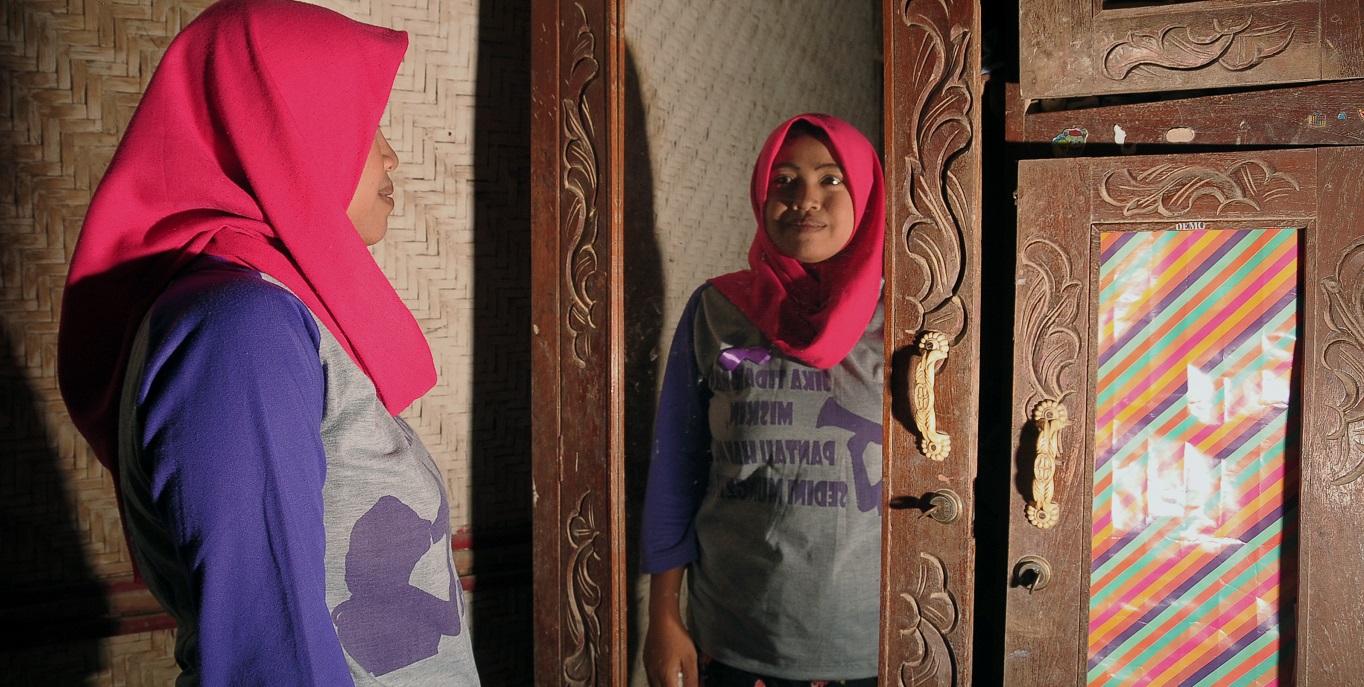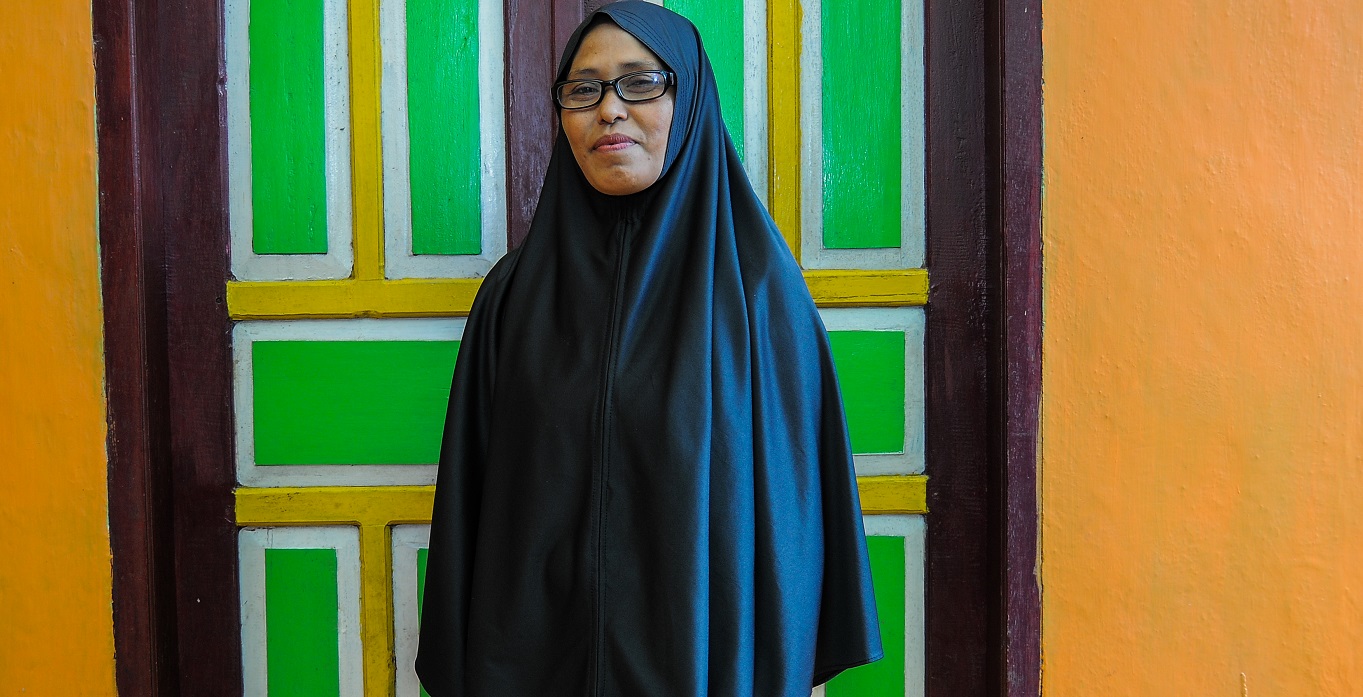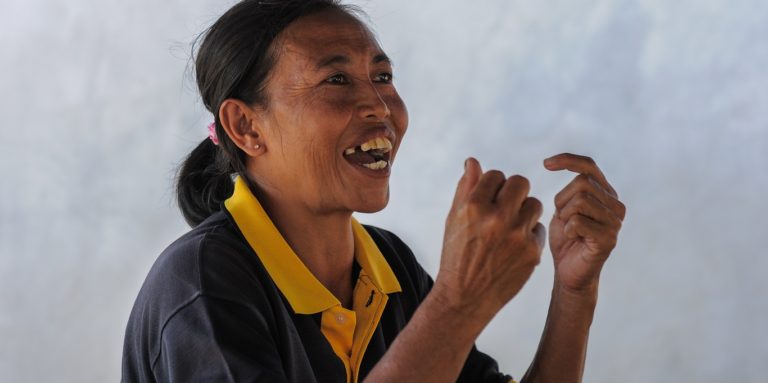Stories
A Priest, an Indigenous Leader, and an Attempt to Diminish Taboo on Sexual and Reproductive Rights in Nias
31 December 2016Penulis: admin
It’s not her first time to reap protests during her sermons. Yarniwato Mendrofa S.Th, is a female priest who lives in Sisobahili I Tanese’o of Hiliduho district, Nias Regency, North Sumatera. She is known for her candour in discussing sexual and reproductive issues, that congregates refuse to hear, during her sermons.
“Why is she talking about these? That’s not what the bible teaches us. It’s taboo to talk about casual relationships and pregnancy out of wedlock!” she mimicked her congregates’ reaction. “It was never my plan to bring up these issues into my sermons. But many of the cases had happened to my congregations. So I thought, let’s have a serious discussion about this. It’s not something you should be ashamed about, so stop covering it up.”
After attending a training on sexual and reproductive health with PESADA, the priest realised how important it is for her congregates to have this information. She began to make her ways and approach her elders so they can work together in handling issues related to sexual and reproductive health, especially for the congregations in Nias.
“And it has been aligned in a religious manner, too, since in our parish we’ve had cooperation with health units as well,” said Yarni. “I think it is wise for both men and women to do reproductive check-up before getting married. The same way it is important for a church to respect its teachings; so we’re averted from committing a sin for uniting two people who have previously engaged in pre-marital sex. This is something the church community has agreed upon and we’re going to communicate it to our congregations,” she added.
When she shared about it in her sermon, she still got wave of protests, especially from men. “Are you going to have everyone checked?” she said copying one of the protesters. “Of course it’s not going to be me. Besides, everyone has the right to say no. We’re not going to make them do it. I just got a call about a mute woman who was raped by a married man who is still a member of her family. Yet asking her about it is pointless, she couldn’t speak.”
Despite all the protests, it is cases like the mute woman that drives Yarni to keep spreading information about sexual and reproductive issues to her congregations. “She got pregnant so they finally got married. It didn’t seem to matter that she was raped. I’ve also received trainings on what could be happened in a forced marriage, especially when the woman has special needs or disabilities. It begs you the question, is it a sin for being pregnant out of wedlock when the act was not even consensual? At the end of the day, the women always end up as victims and the men get to get away with it. Are we going to let this carry on? Let’s not forget we are all servants of God.”
“I’m willing to bet my priesthood on the line for it. I’ll look for another job if it comes to that. Because I believe with all my heart that these issues are crucial and we can’t hide it for much too long. Let’s face it and handle it together.”
Benyamin Harefa, Head of Lembaga Budaya Nias (Nias Cultural Insititute), shares the priest’s view – especially related to women’s rights. Being the Head of the Institute, not only he is influential, he also has an important standing within the Nias community.
“Our culture has always been respectful to women. Back in the days, we would be punished simply for winking at women,” Benyamin explained. “Teasing was prohibited by our community law. Imagine what the punishment was if you impregnated a woman, they’d cut your head off. Women used to have companies wherever they went. Things have really changed.”
He realises how much has changed throughout the years. Societal culture and norms have shifted. Traditions have been misinterpreted, if not taken for granted. Take jujuran for example. Jujuran is the bride price that needs to be provided by the groom’s family to the bride’s family in exchange for taking their daughter.
The amount spent for jujuran can be highly enormous up to hundreds of millions rupiah, which often times put newlyweds deep in debt and end up in poverty instead. On the grooms’ side, there’s this notion that since they’ve paid so much – they get to treat the wife however way they like. As a result, domestic violence is often found in Nias.
“When in reality, our culture simply requires 2 sacrificial pigs as bride price. A large pig will weigh around 200 kilograms. These days, everyone who is deemed respectable in our society will be given a pig. One time, I attended a wedding that gave away pork as wedding favours. You can imagine how expensive that wedding must be,” Benyamin added. “There used to be 10 stages of ceremony to complete for a wedding. It was obscenely expensive. Everything is simpler now and less costly as we merged stage 1 to 8, and 9 with 10.”
There are more things incorporated into Nias wedding that aren’t part of the culture. Things such as keyboard in music performance, and flower boards. There’s a saying in Nias, sokhi mate moroi aila, which means it’s better to die than embarrassed. This is the drive that makes our community feels like they have to compete, including wedding party. The bigger, the better.
“There were times when we pack our food in leaves. Now everything is packed in boxes. What’s the cost for that? It’s expensive,” said Benyamin.
Along with the rest of Nias culture leaders, Benyamin is working hard to even up the cultural rules with the evolving values of modern society. “We’re the leaders. We were the ones who set up all the rules, like we did for jujuran. So isn’t it outrageous that it is our own rules that drove us into poverty? I believe it is time for us to evaluate. Time to deliberate and find a common ground to agree as to which of the rules still apply. How much money should be spent on jujuran, and so on,” explained Benyamin.
“Some of the leaders are still complaining, how you would feel if it was your granddaughter?” mimicked Benjamin. “I told them I’d accept it. So long as I know the kind of a man that he is, and that they’re good for and with one another. That’s among the things we’re still negotiating. It’s just about finding the reasonable ceiling for jujuran. We’re not trying to replace our culture.”



